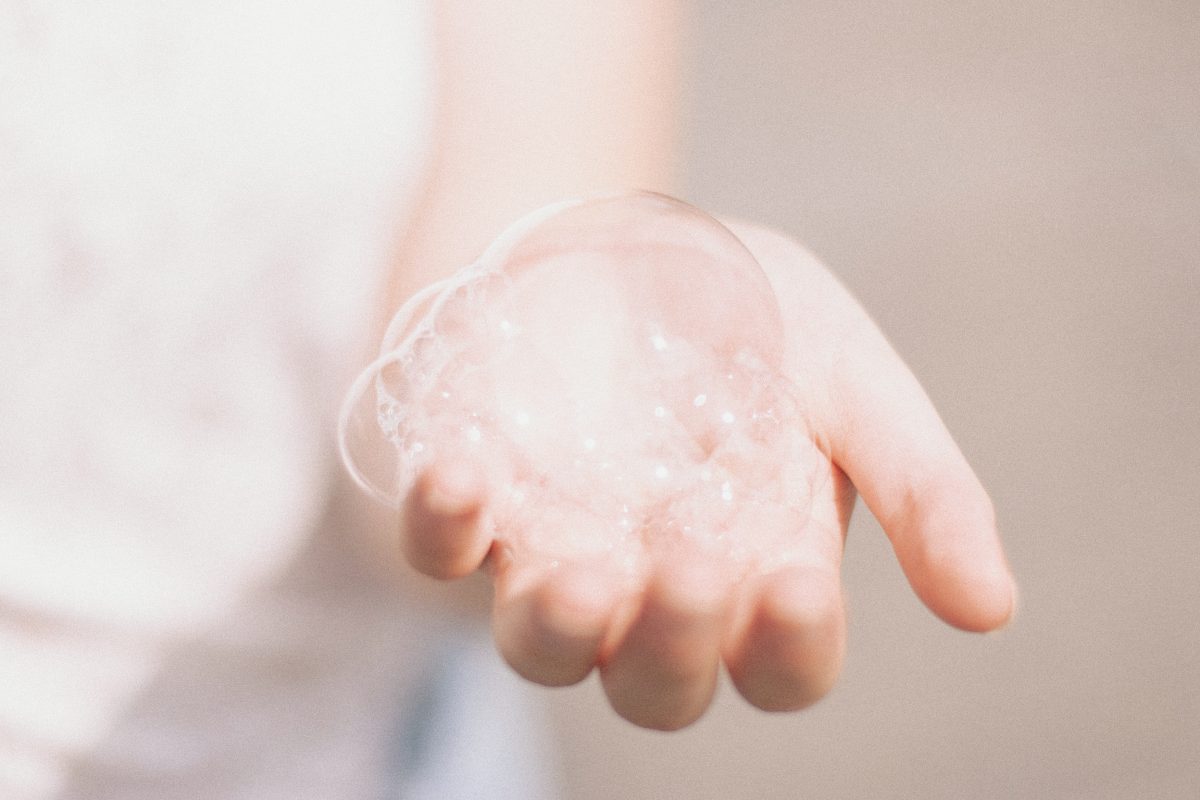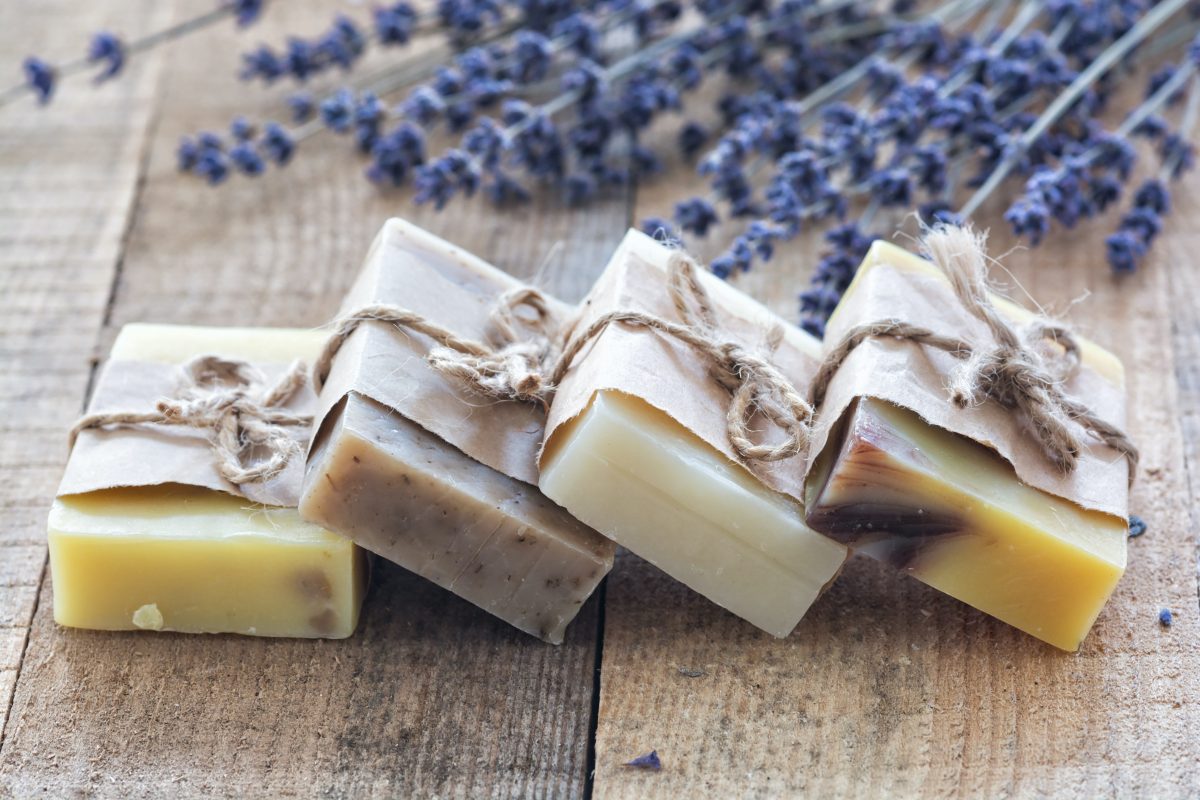10 Benefits of Using Natural Handmade Soap
Soap is something that almost every person uses, several times a day in most cases. It is a primary tool for cleaning and preventing the transmission of some bacterial and viral diseases. The word ‘soap’ is used for all varieties of skin cleansers, solid, liquid, or even powder. Within these categories, there are various colours, scents, shapes, packaging, and labels. Some soaps are deodorant, others are antimicrobial, moisturizing, softening, handmade soap, and more. But not all soaps are equal in potency or efficacy, and not every soap is good for you.
There are two basic types of soap:
- Handmade, natural soap
- Commercially, mass-produced soap
Commercially made soaps are usually considerably cheaper than handmade soaps, but there are good reasons why this is the case. One is because they aren’t actually soap. They are harsh chemical detergents that might wash off the dust from your body but will also strip moisture from it. Not only are they bad for your skin, but they are also bad for the environment too.

As the largest organ in the human body, and the one most in contact with the outside world, we should be aware and careful with what we put in contact with our skin. Therefore, handmade soaps are the way to go, and we are here to tell you the many benefits of using handmade soaps.
Read also: Why Handmade Soap Is Goof For The Skin And The Soul
Benefits of using handmade soap:
- Natural Handmade Soap is Soap
If you look more carefully at the packaging of soap on a store shelf, you will find that most of them are labelled ‘body bars’, ‘cleansing bars’, ‘beauty bars’, and whatnot. This is because they are not soap but harsh detergents in disguise. They are a chemical stew of detergents, lathering agents, synthetic ingredients, and harmful fragrances.
Handmade soaps, on the other hand, are soap made through a ‘cold process’ or ‘melt and pour’ which bypasses any need for lye. The leftovers are oils that will nurture and nourish your skin.
- Handmade Soap is highly moisturizing
Glycerin is the byproduct of the saponification process. It remains on our skin and attracts moisture from the air, keeping your skin hydrated. But the thing is, most companies remove this leftover glycerin from their ‘soap’ bars to make moisturizers or lotions separately. This results in a harsh body wash that strips your skin of moisture. Your body will feel irritated, dry, and even itchy. You have to buy these lotions to make up for the loss of moisture from the soap. An excellent marketing strategy for the companies and nothing for you as a consumer.
Handmade soaps retain glycerin and contain plenty of plant oils and butter. The result is a rich, skin-nourishing soap bar with natural oils and glycerin. There is no need for moisturizers after using handmade soaps.
- Handmade Soap is made from natural ingredients
Handmade soaps do not contain synthetic ingredients, artificial fragrances or perfumes, artificial colours, detergents, or synthetic preservatives. They are made from natural soap bases like avocado oil, organic shea butter, glycerin, aloe vera, cocoa butter, olive oil, almond sweet oil, castor oil, vitamin E oil, and more. They are also rich in essential oils. All of these provide natural colour, texture, aromatherapy, and gentle exfoliation which is hard to recreate in laboratories.
Traditional soaps contain paraben which is associated with an increased risk of breast cancer. They also contain sodium lauryl sulfate (SLS) or sodium Laureth sulfate (SLES) for bubbles and foam. These are notorious for skin irritation and may cause kidney and respiratory damage.

- Handmade Soap is cruelty-free and animal-friendly
Another great benefit of natural, organic soaps is that you can rest assured they are not hurting any animals in the testing or production phases. The ingredients used are almost exclusively plant-based (with some rare exceptions where soaps use animal fat). Using natural and organic ingredients means that it is safe for us to use soap. Animal testing is not necessary for these products.
How many on-the-shelf-soaps can promise this?
- Handmade soap is an Ethical Choice
If you are still unsure, maybe this point will make you see why we should all switch to handmade soaps. Companies exploit labour, period. They underpay their workers, indulge in child labour, and have unsafe working environments.
Handmade soaps are cruelty-free, safe for the environment and workers. Handmade soap makers put all their attention into the safety and comfort of our bodies. They are more socially aware than big companies and labs. So by buying handmade soaps, you are supporting a small business and saying no to unethical manufacturing and testing strategies.
- Handmade Soap helps maintain healthy skin

Many people have sensitive skin which gets easily irritated with soaps and body washes. Some of us with sensitive skin don’t have sensitive skin at all. It is our body reacting to the chemical irritants in our store-bought products.
Handmade soaps are better in that regard, no questions asked. They relieve dryness, itchiness and even ease skin conditions like eczema and acne.
If your skin requires extra care and comfort, switch to handmade soaps and see for yourself why they are better overall.
- Handmade Soap is economical
People look down on handmade soaps because they cost more. In the end, though, they are more economical than cheaper, commercial soaps.
Commercial soaps are cheap because they are easy to produce in the lab. They don’t offer natural oils and glycerin. Without any moisturizing agent, you have to purchase a lotion, which is also made with synthetic ingredients. More money!
And when you get irritated skin and other skin conditions, you buy more products as remedies, visit a doctor and try out more products. So much more money than reaching for a natural, handmade soap.
Soap companies want to make a profit even at the expense of people’s health. Handmade soaps provide all the goodness that there is to offer as soap. You’d be smarter to pick the latter.
- Handmade soaps have natural antibacterial properties
In commercial antibacterial soaps, you will find triclosan, parabens, sulfates, and other toxic chemicals that are associated with cancers, hormonal imbalance, and affect our reproductive system.
Handmade soaps, on the other hand, use antibacterial agents like essential oils. Not only do these help fight harmful bacteria, but they also have great fragrances and are good for the skin.
- Handmade Soap comes in Unique designs
Handmade soaps are available in a vast array of beautiful designs, healthy scents, and soap bases unique to their company only.
Soap making is a meticulous process. Anyone who creates healthy soaps in such wonderful designs is worthy of our support, don’t you think?
- Handmade Soap is better for the environment
Think about the packaging that comes with most of our daily-use items. Companies look to make a profit before anything else. They don’t care about how much carbon footprint they leave with manufacturing soaps and plastic packaging.
Add to this the preservatives, fragrances, dyes, and detergents that billions of people wash out with soaps every day. These will end up in farms and natural bodies of water and cause harm to our ecosystem. We can be better.

Handmade soaps are more environmentally friendly as they are made with healthy and non-toxic, natural ingredients. Most, if not all, come with eco-friendly and recycled packaging like cardboard or paper. You never have to feel guilty taking baths each day all the while getting a luxurious bathing experience.
Handmade soaps offer all the goodness that commercial soaps cannot provide. Hopefully, we could convince you of this fact. Are you looking to buy handmade soaps? We offer soaps hand-made by local soap makers in Nepal. The soaps are organic, eco-friendly, and cruelty-free. Plus when you buy from us, you are supporting the soap makers in rural areas of Nepal directly.
Check out the range of organic, eco-friendly, and cruelty-free soaps, available with us at himalayanmerch.com:





